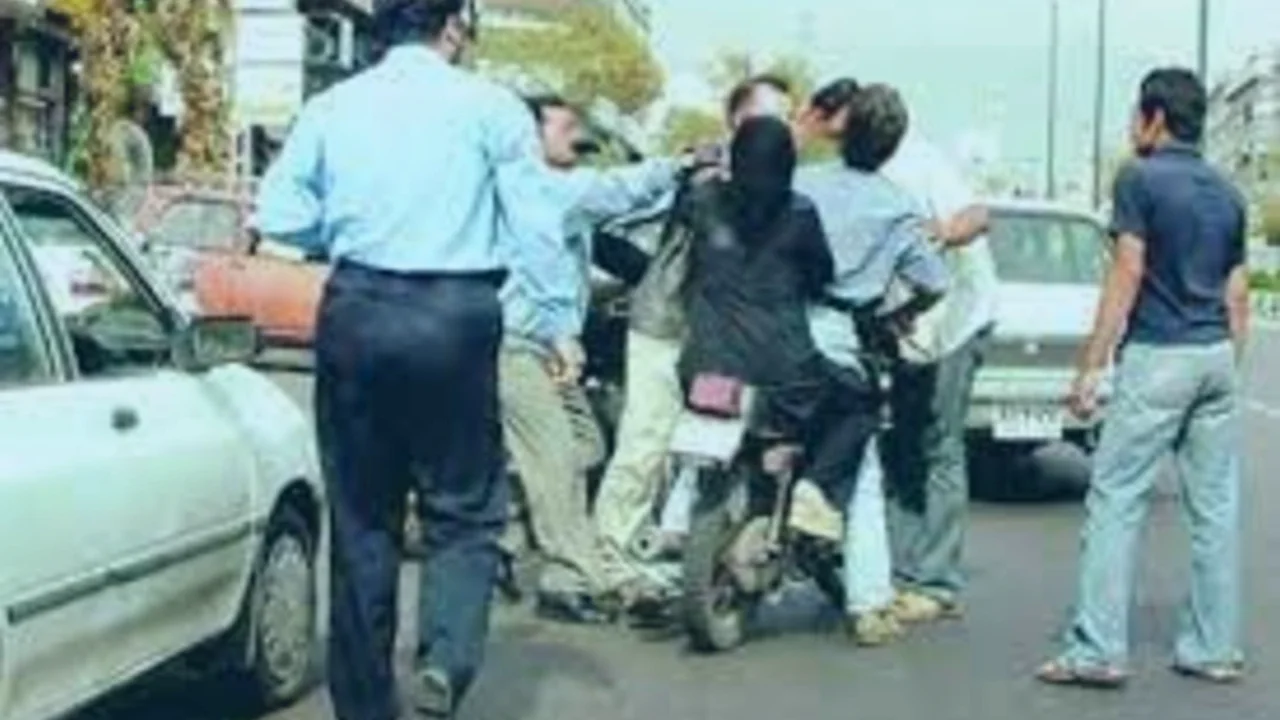Poll: 63% Hear Swearing and Profanity Daily
In Iran Open Data’s recent poll about profanity, 63% of respondents said they hear “a lot” of curse words daily. About 43% stated they themselves use “a lot” of profanity daily. About 77% stated they were on the receiving end of obscene and sexual insults, while 59% stated that they use obscene and sexual profanity.
Gender and age were the two most significant differentiating factors between respondents’ stated experiences with profanity.
Profanity is a fact of everyday life, and is considered, more or less, objectionable in most societies. The frequency, and the manner of using it depends on factors such as age, gender, education, occupation, as well as societal norms.
Valid data on the use of profanity in different countries is scarce. As a result, it is not easy to draw societal comparisons. Available, generalized information indicates that about 7% of the words we use daily are profane. Some studies show Americans use it 80 to 90 times a day. A survey among Britons shows that 60% of them use profane words every day, and 30% stated their use of profanity has grown in the past 5 years.
Various societies use profanity with varying frequency, and the level of use changes periodically. The lack of global empirical information in this field has made it difficult to compare the data.
In the case of Iran, it is even more difficult since accurate and regular data is generally unavailable.
To gather information on the extent and type of use of profanity, Iran Open Data has asked Iranians on social media to share their experiences by taking an online poll. This poll was available to users from December 10th to December 31st, 2022. During this period, 1,427 responses were received. 64% of the respondents identified as women, 34% as men, and 2 percent chose “other” as their gender. 97% of respondents said they lived in urban areas and the rest in rural areas. The respondents said they lived in 31 provinces, most participants in Tehran. The lowest number of respondents said they were from South Khorasan, North Khorasan, and Kohkiloyeh and Boyer Ahmad provinces. The average stated age of the participants was 34. 44% of respondents said they did not have a bachelor's degree, and the rest said they had a bachelor’s degree or above. 40 percent of respondents said they were single and never married; the rest said they were married or previously married.
The following report and graphs provide a general overview of the poll’s results.
- 63% of respondents said they hear a lot of profanity every day, both at home and outside.
- 4% of respondents said that they do not hear profanity at all, whether at home or outside.
- Men more than women, whether at home or outside, said they hear a lot of profanity.
- Respondents aged between 20 and 40, more than respondents over 40, said they hear more profanity and vulgar words, both at home and outside.
- Respondents without college education said they hear more profanity than people with college education, in and out of their home.
- Single more than married or previously married (divorced, separated, widowed) respondents said they hear profanity in and out of their home.
Locations in which profanity is heard
- Nine out of 10 respondents said they hear profanity outside of their home more than inside. In other words, only 10% of respondents said they hear more profanity in their homes.
- Men said they hear more profanity more often than women outside their homes.
Types of profanities heard
- 77% of respondents said they most often hear profanity of a sexual nature.
- Men said they hear profanity of a sexual nature more often than women.
- Respondents between the ages of 20 and 40 are likelier than others to hear profanity of a sexual nature.
Using profanity
- 43% of respondents, whether at home or outside, said they use a lot of profanity daily.
- 10% of respondents said they do not use profanity at all, whether at home or outside.
- Men more than women, whether at home or outside, said they use a lot of profanity.
- Respondents aged between 20 and 40 years said they cursed a lot, both at home and outside, more often than respondents of other age groups.
- Single more than married or previously married respondents (divorced, separated, widowed) said they curse a lot, both at home and outside.
Locations where respondents said they use profanity
- Single more than married or previously married respondents (divorced, separated, widowed) said they use profanity, both at home and outside.
- Men more than women use profanity outside of their homes, while women use more profanity in their homes.
- Respondents between the ages of 20 and 40 said they use profanity outside of their homes more than other age groups.
- Single more than married or previously married respondents (divorced, separated, widowed) said they curse outside of their homes.
Type of profanity
- About 60% of respondents said they use profanity of a sexual nature more often than other types of profanity.
- Men said they use profanity of a sexual nature more than women; women said they use more non-sexual profanity.
- Respondents between the ages of 20 and 40 said they use vulgar and sexual profanity more than others.
- Single respondents are more likely than married or previously married (divorced, separated, widowed) to use profanity of a sexual nature.



